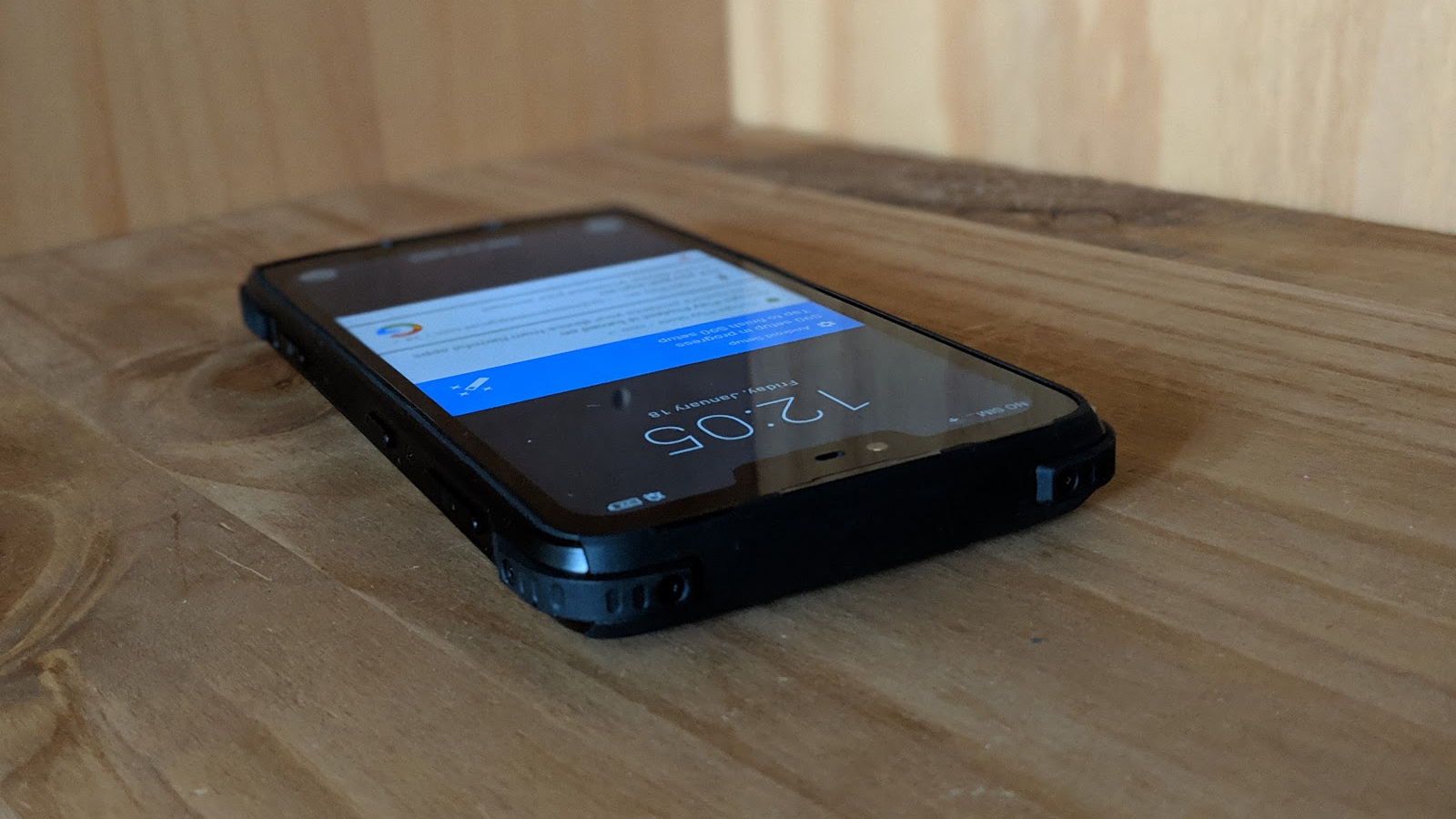TechRadar Verdict
The S90 easily ranks amongst the best rugged smartphones out there, albeit with a few minor flaws. We believe that it sets a new benchmark in the market with an innovative clip-on accessory range that will surely turn heads and inspire others to follow suit.
Pros
- +
Value for money
- +
Impressive performance
- +
Clip-on accessories
- +
Smart design
Cons
- -
Stock Android would’ve been better
- -
The notch
- -
No status light or oleophobic finish
- -
Bulkier than expected
Why you can trust TechRadar
Ed: Don't buy the S90; instead, spend your hard earned cash on the S90 Pro in August 2019, if you can wait till then. At $300 including free shipping, it comes with Android 9.0 and the P70 CPU in lieu of Android 8.1 and the Helio P60. The price of the plain vanilla S90 is reduced by another $20 to $280.
Chinese manufacturer Doogee informed us a few months ago that its next flagship smartphone would be very different from the rest of the competition, and that it would break away from the pack not because of the components it used, but because of the accessories. And then the S90 landed on our desk in a shoebox-sized case comprising of two drawers containing the phone and four add-on modules (if you include the wireless charger).
Doogee sent us the sample and you can only pre-order it from Kickstarter at the time of writing for $299 (£230), a price that includes shipping. Note that, while this price includes delivery, it is exclusive of any taxes that may be levied by HMRC or the courier companies on behalf of the vendor. Want to buy tech from online Chinese retailers? Read this first.
For now, the S90 is only available on Kickstarter where it has smashed its $10,000 (£7,700) target already, with hundreds of backers having pledged nearly $200,000 (£155,000).
The basic model costs $299 (£230), a saving of 40% off the planned retail price for when the handset launches in February 2019 (probably at Mobile World Congress which starts on February 25).
The ultimate S90 bundle, which includes a power module, a walkie-talkie module, a wireless charger, a gamepad module, a night vision camera module and a carry case retails for $449 (£350), which is not a lot considering everything you’re getting, and the fact that this is a unique device.
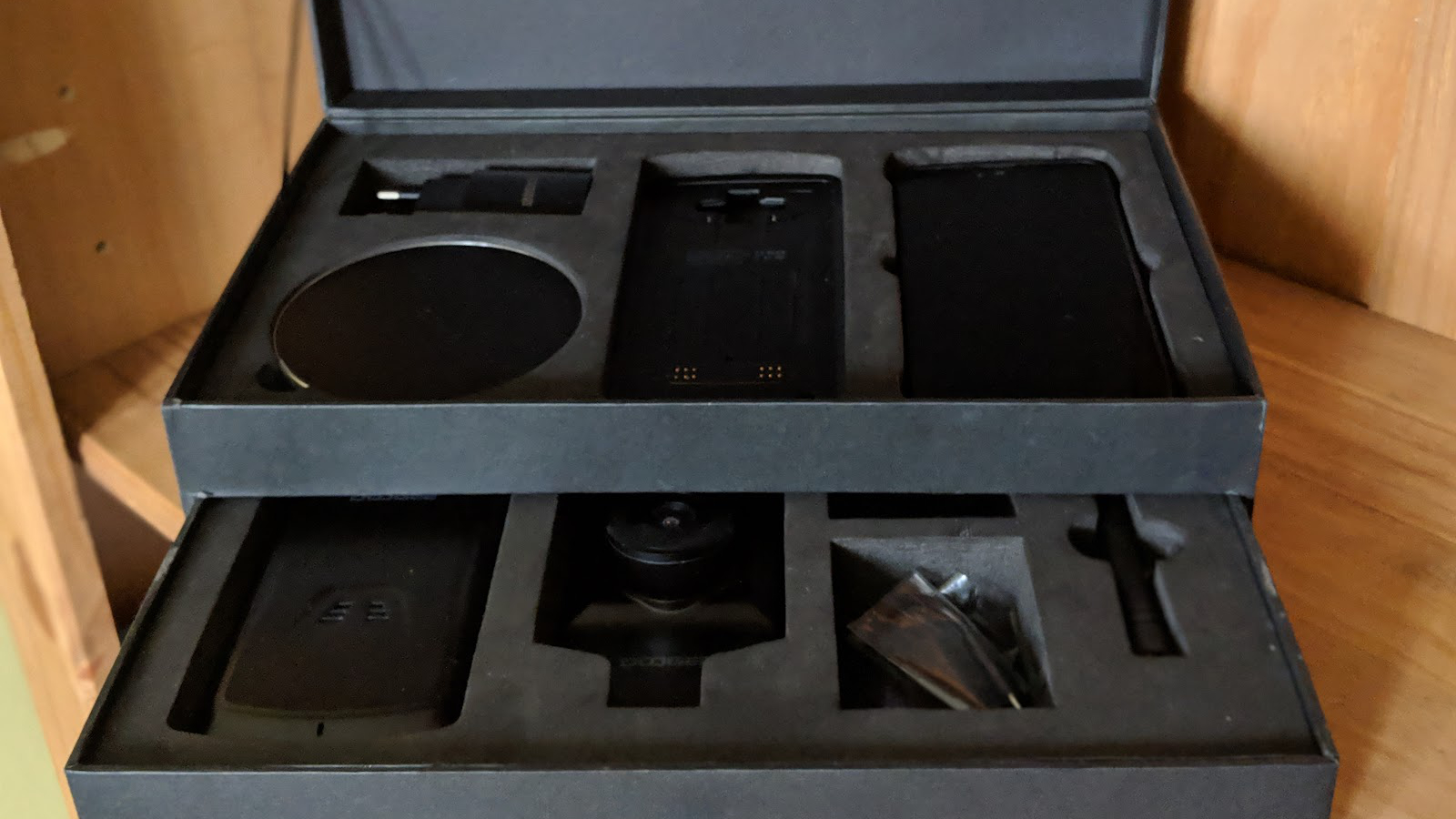
Design
When it comes to modular smartphones, many of us will remember Project Ara, Google’s ambitious plan to make phones easily upgradable via Lego-like accessories. Motorola was bought from Google by Lenovo and the Z series with modular add-ons (called mods) saw the light of day, with the Motorola Z3 promising a 5G mod, no less.
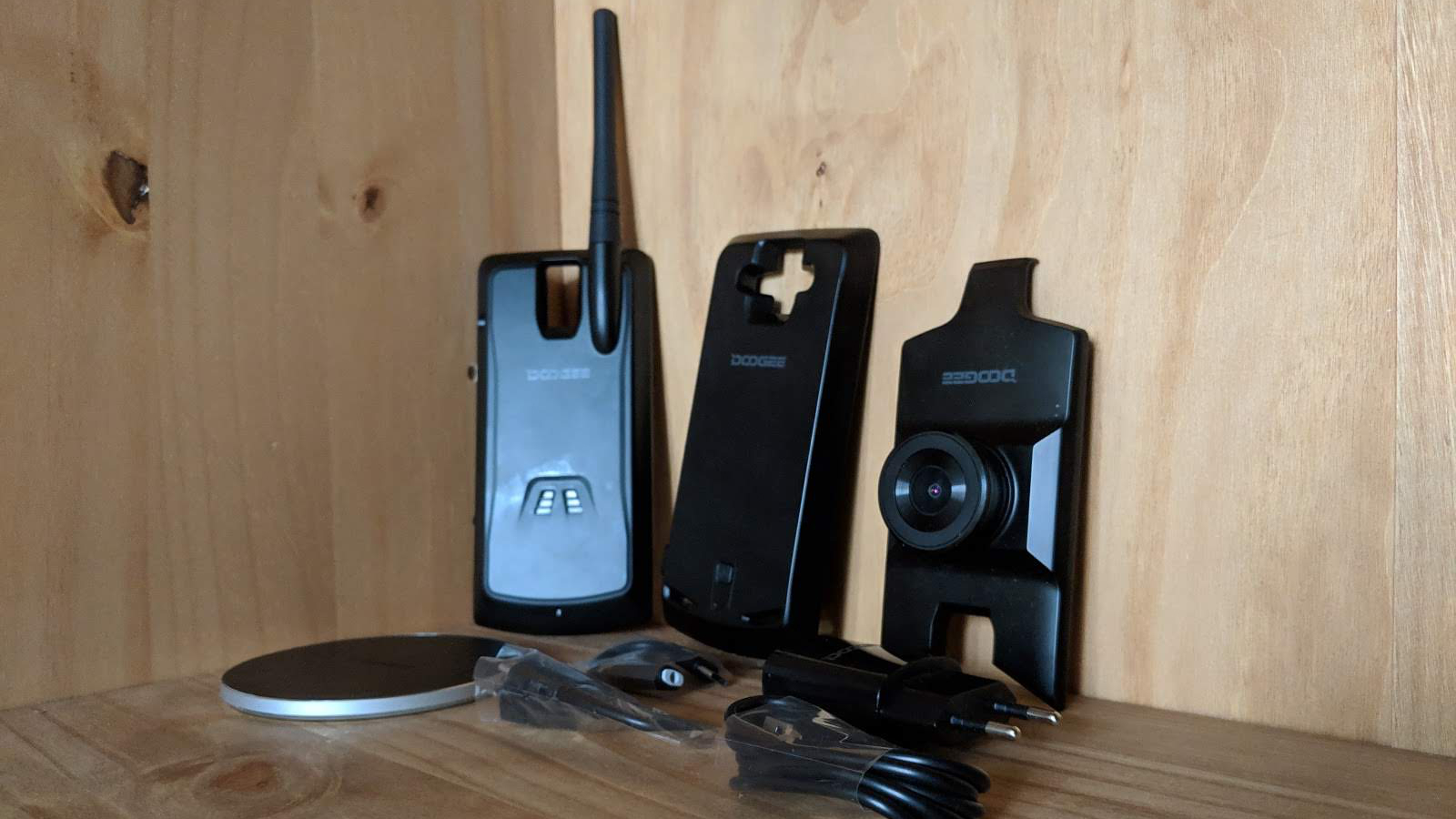
Accessories are also quite popular with business-focused rugged smartphones from manufacturers like Zebra or Panasonic, and offer a very easy way to add optional, genuinely useful functionality, while increasing profitability and margin for the manufacturer.
Once the S90 is out of the box, the size of the phone is surprising at 170 x 80 x 15mm, with a weight of 302g. It easily ranks amongst the biggest rugged smartphones that we have tested, which is something to bear in mind. The E&L S60 and the Poptel P60 are two alternative rugged devices to consider if you’re looking for something lighter.
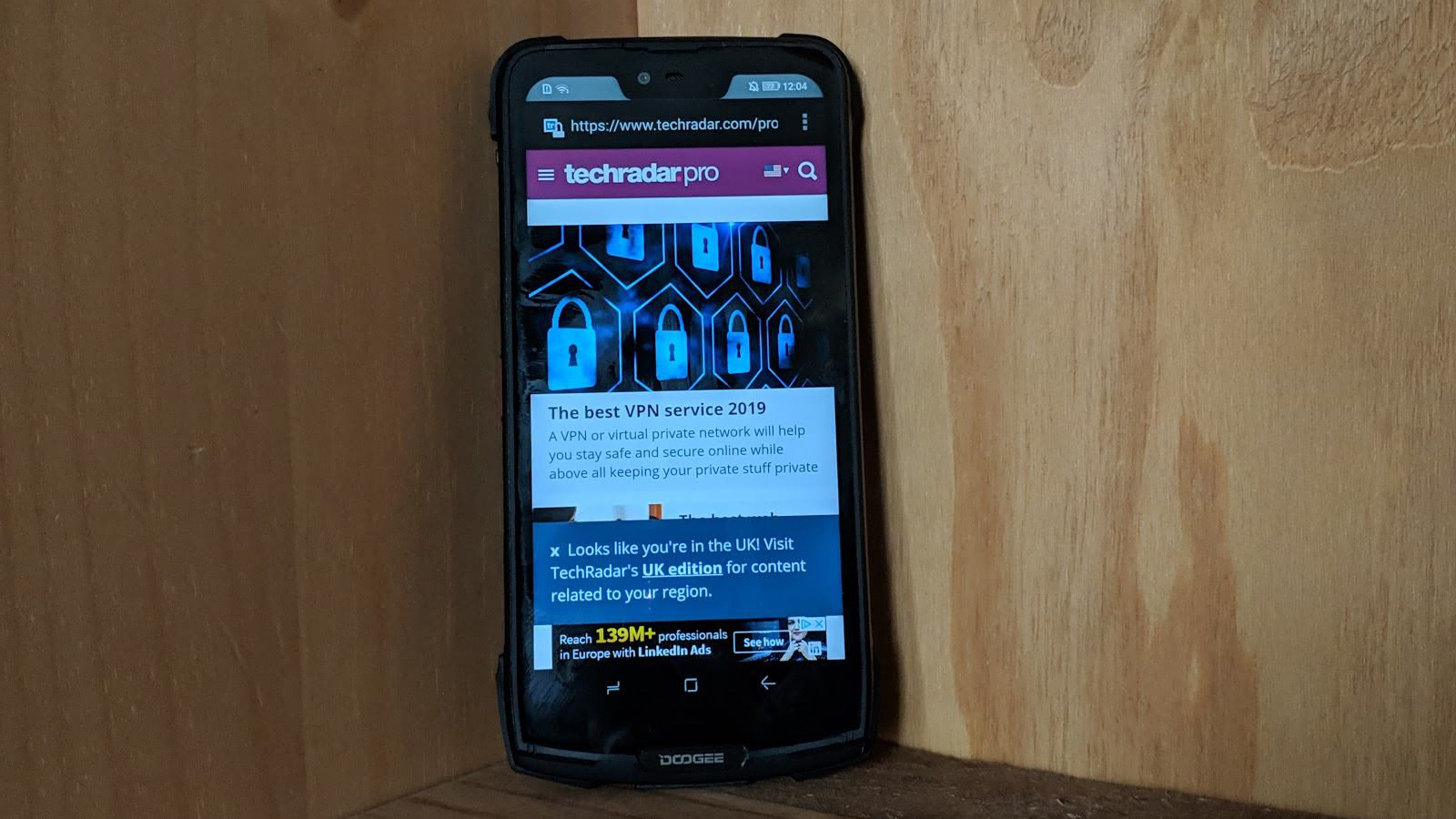
The S90’s chassis blends metal and plastic to deliver an elegant smartphone that should survive more than a few knocks. Rubber reinforcements on the four vertices will mitigate any falls and we applaud Doogee’s decision to add a plastic edge that makes the screen recessed. However, it’s a shame that the display has the trendy but useless notch, and doesn’t have an oleophobic finish. There’s also no status light here.
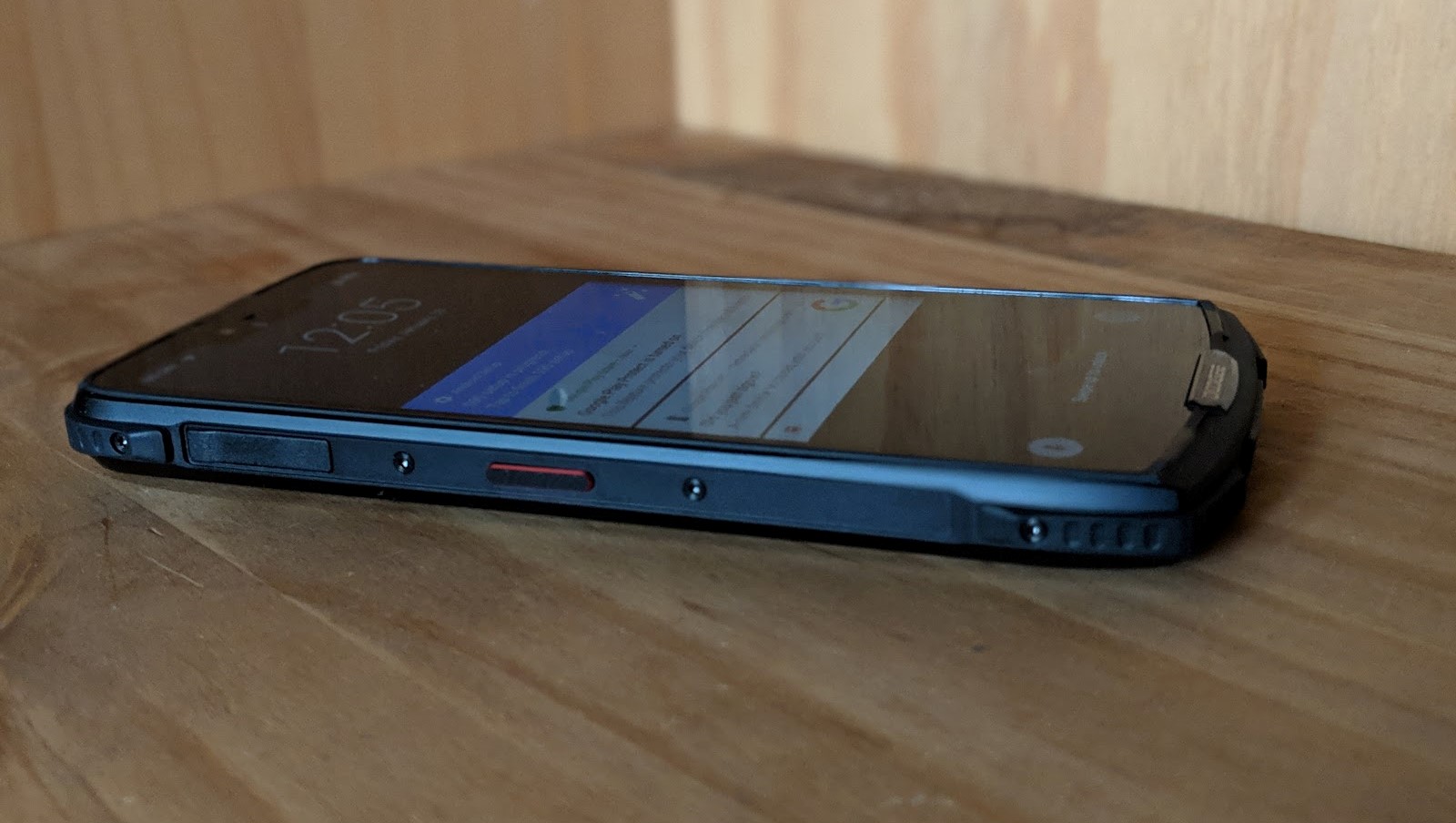
You’ll find a custom button on the left edge of the handset, along with a rubber flap that hides the dual SIM tray. On the right, there’s a dedicated camera button, the volume rocker and a power button. Another rubber flap protects a USB Type-C port (unlike, say, the Poptel P60), but there’s no headphone socket in sight.
On the back are two LED flashes and two camera sensors protected by what looks like a transparent plastic cover that appears to be both scratchable and a fingerprint magnet. A fingerprint reader sits below the cameras, as well as the Doogee logo, and further down, there are 24 metal points that are used to transmit data to modules once they are attached to the S90. There are two speaker grills but only one speaker.
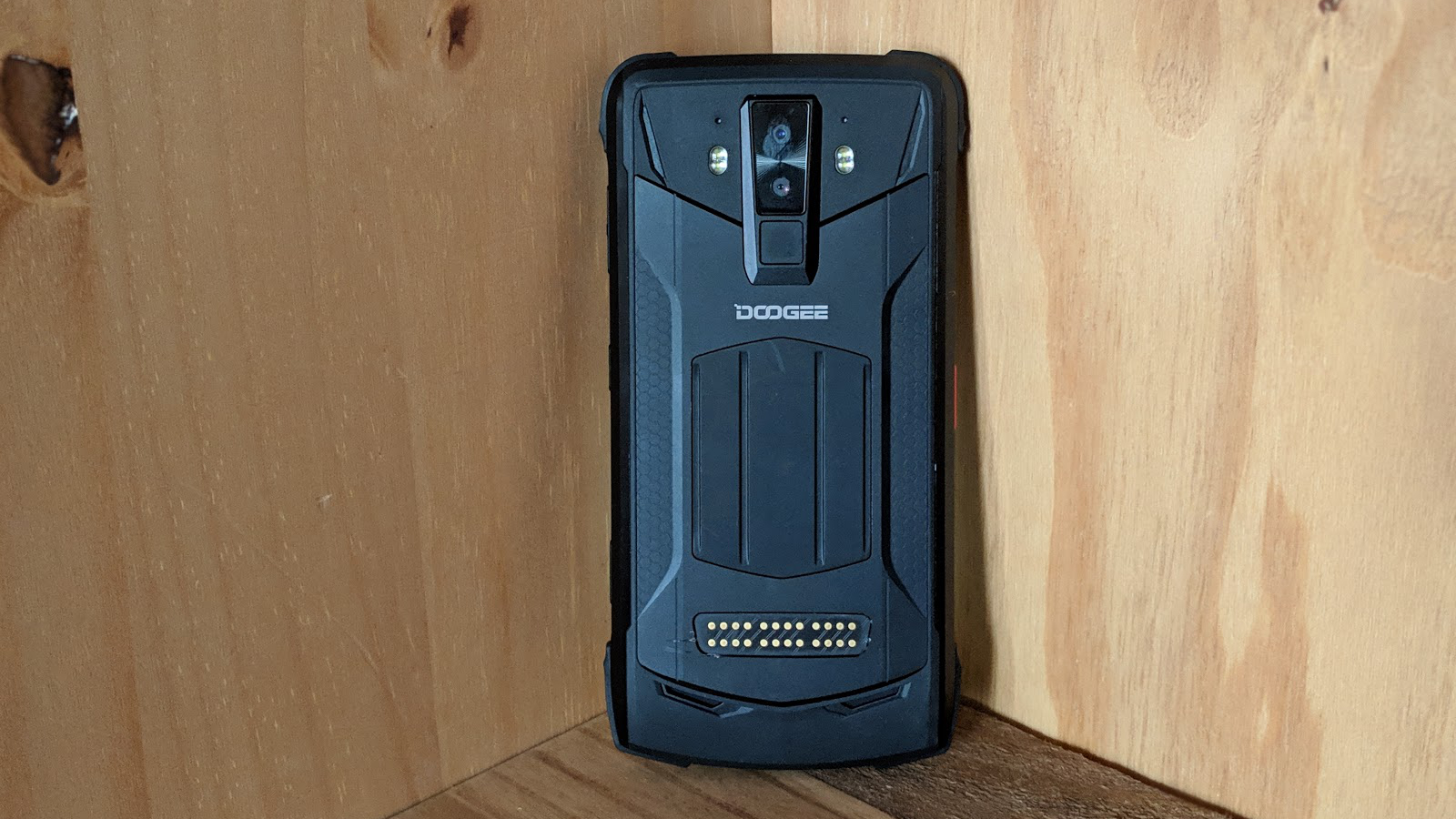
The phone is also designed to meet the industry-standard MIL-STD-810G as well as the IP69K water and dust resistance standard, the highest in the book – a benchmark that others like the Blackview BV9500 Pro have also started to adopt.
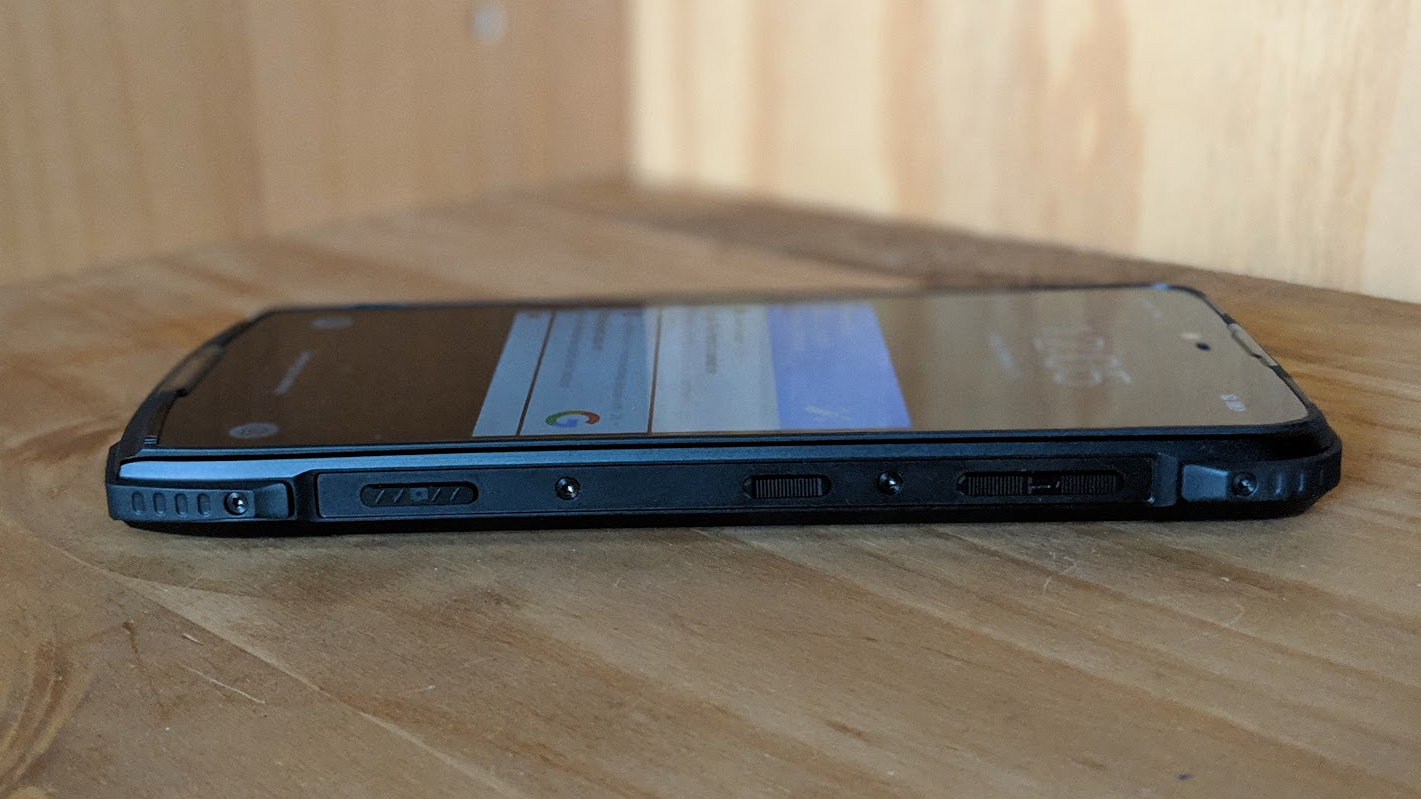
CPU: Mediatek Helio P60 MT6771
GPU: Mali-G72
RAM: 6GB
Storage: 128GB
Screen size: 6.18-inch
Resolution: 2,246 x 1,080
Weight: 302g
Dimensions: 170 x 80 x 15mm
Rear camera: 16+8MP
Front camera: 8MP
OS: Android 8.1
Battery: 5.05Ah
Specifications
The Doogee S90 is the first smartphone that we have tested which comes with the Mediatek Helio P60 processor, otherwise known as the MT6771, a chip which was launched early in 2018 and competes against the Qualcomm Snapdragon SD660. It packs four Cortex-A53 little cores and four Cortex-A73 cores.
Both clusters can operate at up to 2GHz and are supported by a Mali-G72 GPU. The chip can do LTE and supports up to 8GB of LPDDR4 memory (the S90 has 6GB on-board). Note that the MT6771 also sports a Neural Processing Unit from Tensilica which may come in handy for AI workloads in the future.
As one would expect, you can use a microSD card to add to the 128GB on-board storage, although that means sacrificing one SIM card. The S90 has NFC (great for payments), 802.11ac Wi-Fi, plus the ability to charge the sealed 5050mAh battery wirelessly, leaving the Type-C port untouched (a great idea as this is a rugged phone).
In use
The S90 performed spectacularly in our tests, racking some of the best numbers we’ve seen in our benchmarks, surpassing previous Mediatek silicon by a wide margin. One can safely assume that this phone will be able to sail through most applications without much trouble.
Here’s how the Doogee S90 performed in our suite of benchmark tests:
Geekbench: Did Not Run
PCMark (Work 2.0): 7,407
Passmark: 8,672
Passmark CPU: 166,452
Androbench (sequential): 293 (sequential read); 242 (sequential write)
Androbench (random): 91 (random read); 20 (random write)
3DMark Slingshot: 1,119
3DMark Slingshot Extreme: 764
3DMark IceStorm: 20,185
HWBot Prime: 5,787
The phone supports 29 bands in all and provides dual 4G SIM standby. It doesn’t run the latest version of Android, though, instead sticking to a customized version of 8.1 Oreo. The latest firmware is dated December 2018 which is a good sign.
Doogee has equipped the S90 with a ‘survival software pack’ which is essentially an array of useful apps that includes a sound meter and a barometer, among other things. Similar app packs – probably from the same developer – are often available on other rugged smartphones.
The device’s description alludes to the presence of a hardware coulometer and we confirmed with Doogee that this is the case. However, we didn’t find any apps on the device that would make use of this particular feature.
As for the modules, they worked as described, although they will add to the weight and detract from the general portability of the S90. Note that the modules aren’t IP68 certified and may break if dropped.
The night vision camera allows you to capture shots in low light (but not in complete darkness), though it adds noise to the final photo. It uses a 2-megapixel Sony IMX291 camera sensor and amplifies light it receives by a factor of 12. The 5000mAh power module turns the S90 into a 10Ah phone, but adds another 138g to the device, also turning it into a brick.
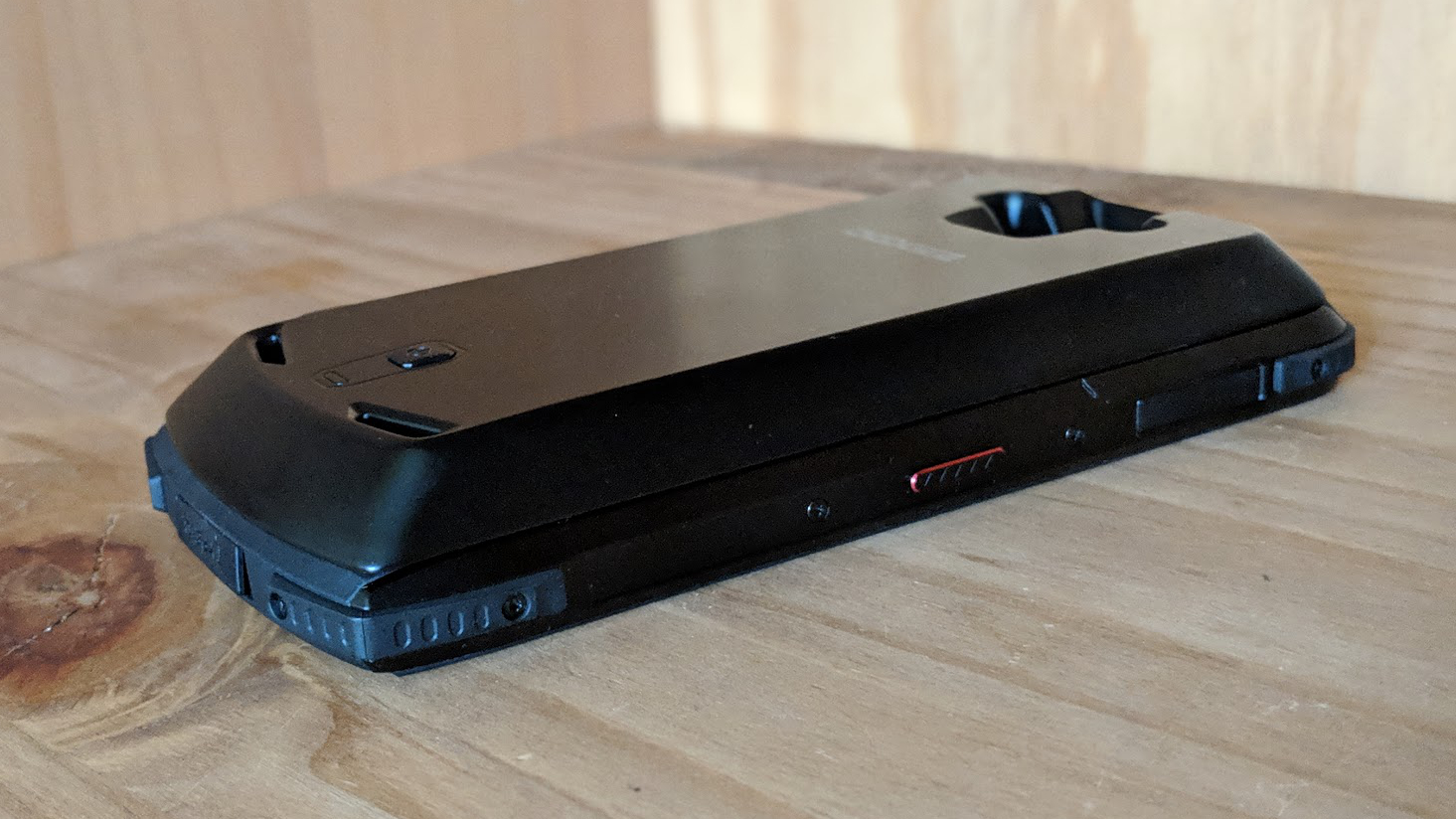
Furthermore, there is a gamepad that transforms the device into a portable gaming powerhouse, plus a walkie-talkie PTT intercom module that covers a wide range of 400-480MHz frequencies, and offers a talking range of up to 10km, which is great when you are off the grid and outdoors.
Face unlock worked well except when it was too dark. We didn’t try the built-in QR/Barcode scanner or the Emergency/SOS call feature.
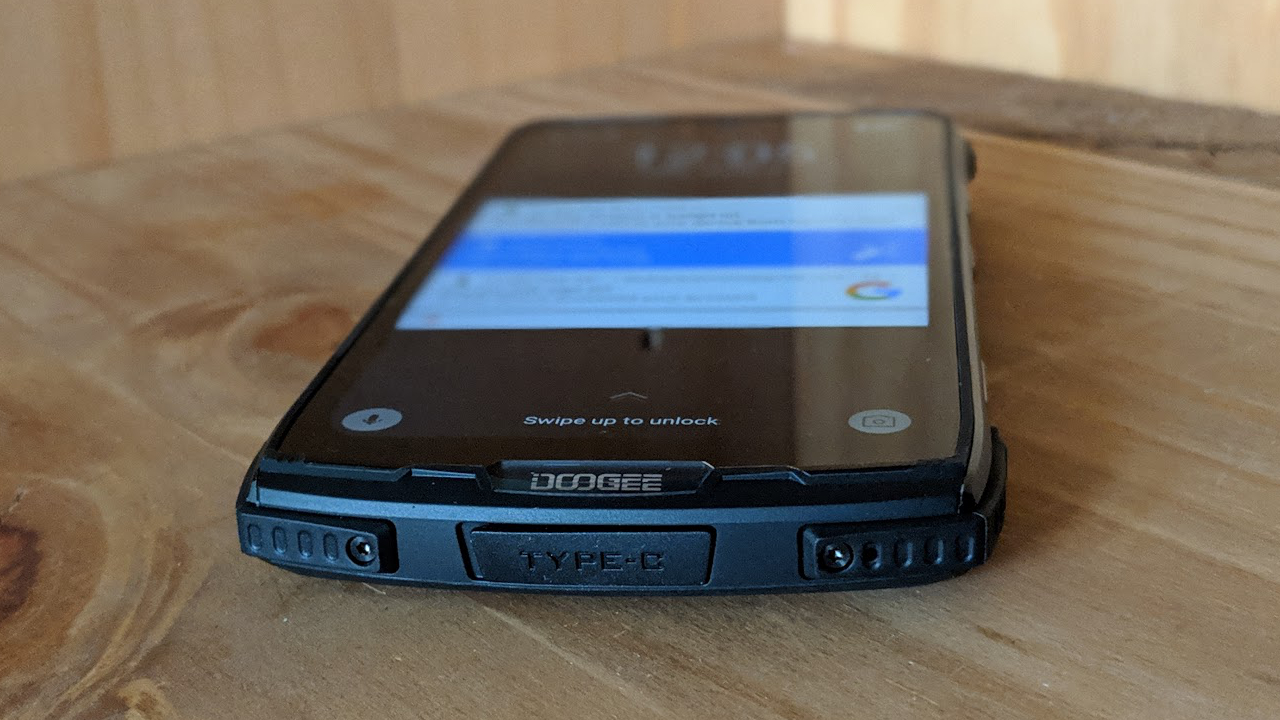
Doogee also has Start as the default mobile browser, using search.start.fyi as the default search page – and this is considered by some as being a suspicious website that often crops up in malware and PUP (potentially unwanted programs) conversations. Why did Doogee do this? We have put this question to them. Fortunately, Google Chrome is still there, but tucked away in a folder.
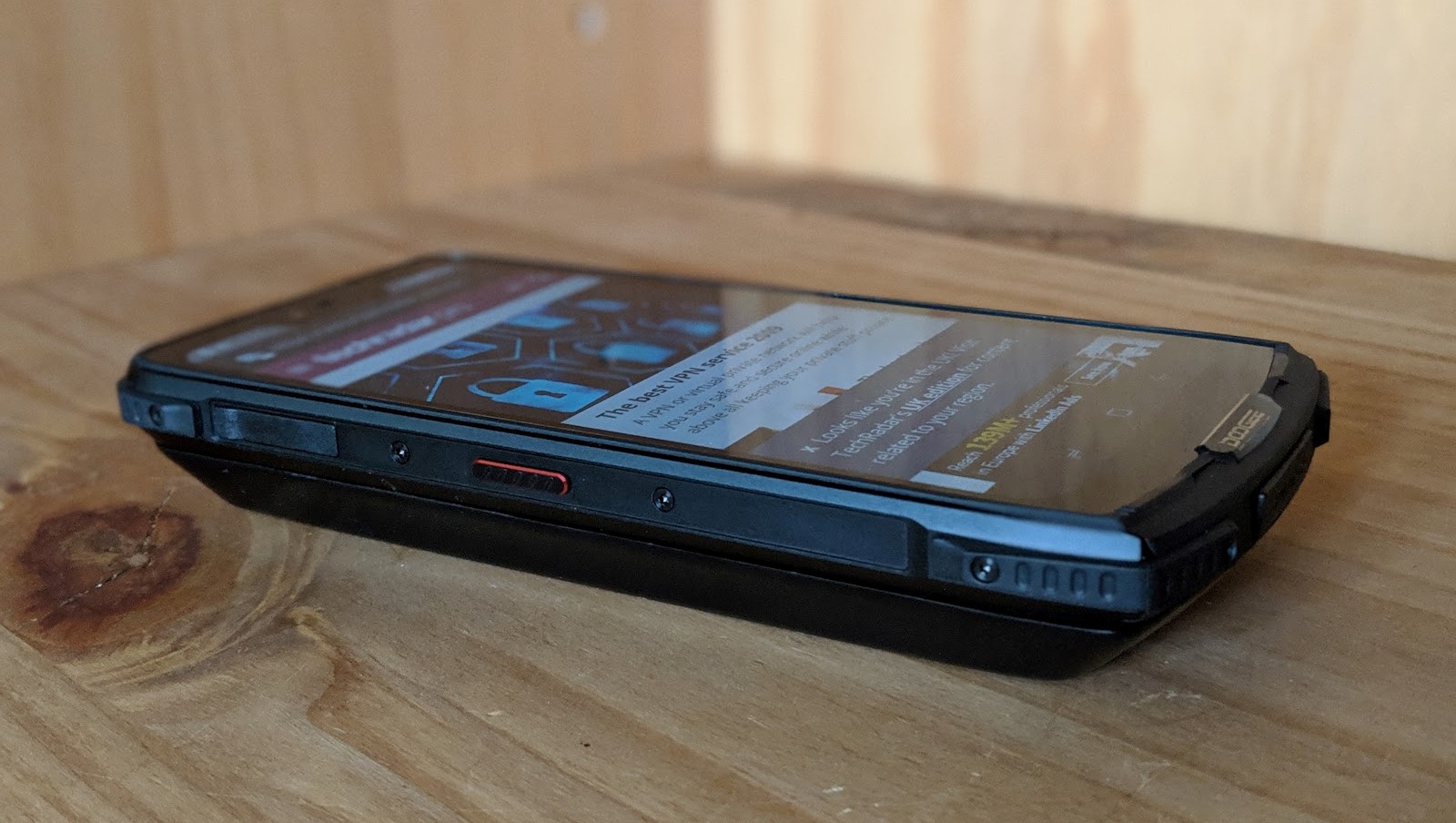
Final verdict
No, the S90 cannot be described as unbreakable. It can be scratched and it can be wrecked beyond repair, but today’s exercise was not one of truth or dare, but an attempt to find out what Doogee’s new flagship is capable of – and boy did it impress.
Doogee confirmed that the price of the S90 after Kickstarter will be $369.99 (£285). The gamepad and the wireless charger will cost $29.99 (£23) each while the battery will be available for $39.99 (£31), the intercom for $49.99 (£39) and the night vision camera for $59.99 (£46). Doogee has also confirmed that they are working on a 5G module which would extend the lifespan of this device.
Should you buy the S90? The answer is unequivocally yes if you are after a best-in-class rugged smartphone (at least on paper) and are ready to take the risks usually associated with buying expensive hardware from abroad.
The S90 beats the competition hands-down when it comes to sheer performance and its intuitive clip-on system paves the way for the development of some intriguing accessories (such as a thermal camera as seen on the Cat S61 perhaps).
- We’ve picked out the best rugged smartphones

Désiré has been musing and writing about technology during a career spanning four decades. He dabbled in website builders and web hosting when DHTML and frames were in vogue and started narrating about the impact of technology on society just before the start of the Y2K hysteria at the turn of the last millennium.
